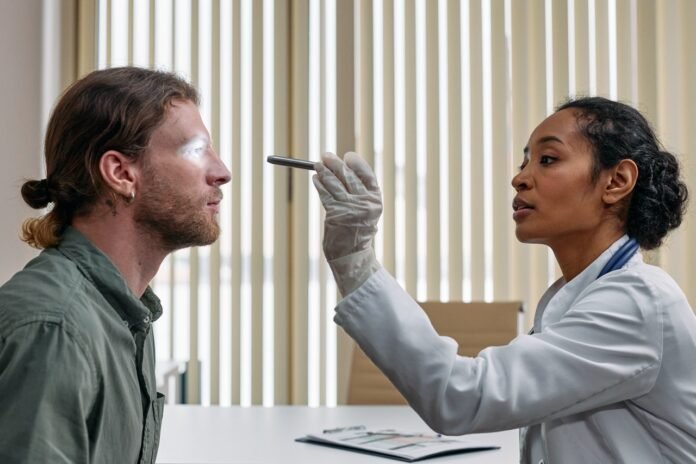We’re all aware that keeping track of our health and wellness is important. But between managing our everyday tasks and trying to balance our personal and professional life, many of us end up putting our health on a back-burner. Even when we do manage to visit our dentist, dermatologist, gynecologist, and primary care provider, a medical appointment with our ophthalmologist often isn’t on our to-do list. In fact, statistics show that only half of Americans go for a regular eye exam.
In reality, experts suggest that we should be visiting our eye doctor once every one or two years. Not only does this help maintain healthy vision, but it’s also an effective way to detect eye diseases early on. If you’re thinking about visiting your ophthalmologist, here are five reasons why you should do it right away.
You have allergies
When most of us think of allergies, we think of a runny nose, and a lot of sneezing, and sniffing. These are the usual signs of allergies, right? Well, yes, but eye allergies don’t necessarily have to be followed by these tell-tale symptoms. Instead, a person with an eye allergy may experience symptoms such as burning, redness, and itching. These are caused by indoor (grass, trees) and outdoor allergens (dust mites, mold) as well as irritants such as smoke.
While symptoms like these don’t cause vision loss, they can cause discomfort. They’re treated with eye drops and medications that the doctor prescribes. If the symptoms you’re experiencing are more severe, you may need to visit an allergist to receive the necessary treatment.
You have a high risk for eye diseases
This one goes without saying. Still, you’d be surprised at how many individuals don’t get their eyes checked annually despite having a high risk for eye diseases. Having a job that involves using the computer all day, having diabetes, and even simply wearing glasses are some of the numerous factors that could increase your risk of developing eye diseases. The risk’s even higher if you or your family members had eye diseases such as glaucoma, cataracts, or diabetic retinopathy.
According to a reputable ophthalmologist in Scottsdale, an adult should have a complete eye exam every two-three years (one-two years if you’re African-American). However, if eye-related conditions happen to run in the family, or you have high blood pressure or diabetes, you will need to schedule eye exams more often.
Your vision is blurry (near or far)
Some eye problems simply cannot be fixed without visiting an ophthalmologist. This is definitely the case when it comes to blurred vision. Blurred vision manifests as inability to clearly see the objects near and far. Two main reasons why your vision may be blurry are farsightedness (hyperopia) and nearsightedness (myopia).
Sometimes, the patient will only need contact lenses, glasses, or a laser to adjust it. Other times, blurred vision may be an indicator of macular degeneration. In that case, treatment should start as quickly as possible so that the issue is nipped in the bud.
You’re over 40
When you’re young, you might think that there’s no need for check-ups since your vision is just fine. But as you age, you come to realize that your vision won’t be like that forever. Once you’re over 40, you may begin to notice slight changes. Your ability to focus may be reduced, and you may experience difficulty reading.
As soon as you notice these changes, be sure to schedule an appointment. Even if you’ve never worn contacts or glasses to correct vision, it’s still a good idea to visit your ophthalmologist.
You can’t really remember the last time you had an eye exam
Being unable to recall your last eye exam is a clear indicator that you should schedule one right away. Chances are, it’s been a while since you last visited your ophthalmologist, so it’s best you have your vision checked.
Having your vision and eye health evaluated during a screening can help with early diagnosis of eye diseases. This, in turn, can help you get the treatment you need sooner and make sure that no condition goes unnoticed.
Wrapping up
There’s no doubt that preventative health care appointments play a vital role in our overall health and wellness. Keep up with regular screenings and do your best to maintain eye health between exams, and you’ll be well on your way to ensuring good eyesight well into old age.























